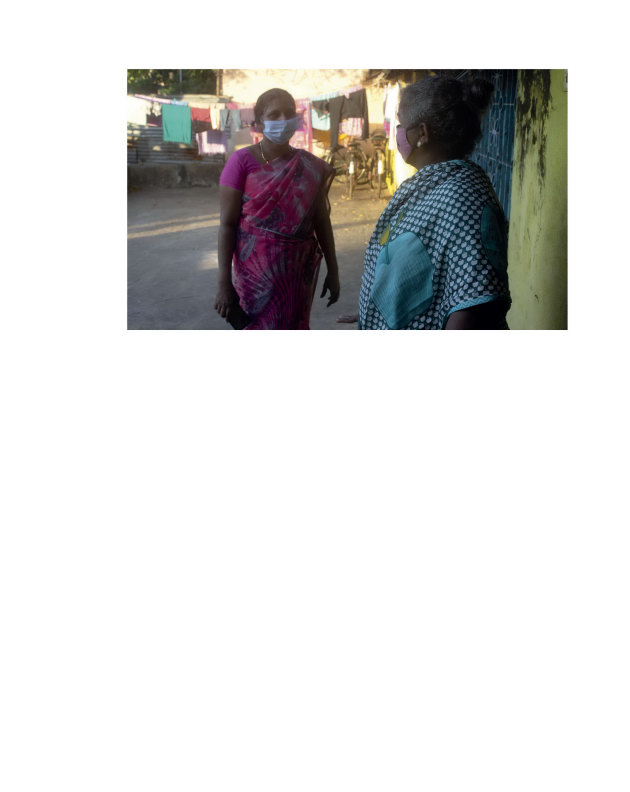
E
ducation
171
Diploma alumni facilitating outpatient clinic access for persons with mental illness
ollowing pages (172–173):
Diploma alumni on a home visit to address psycho-social distress
experienced by a family and children
c
o-operation regarding the programme in the
community. An example was when Childline
was used for prevention of child marriage
with the support of the community.
Community Mental Healthcare diploma
programme participants are chosen in
inclusive ways. ‘e policies include
encouraging service users, minorities,
marginalized (PWDs, LGBTQIA+, rural and
tribal population, etc.),’ says Dr. Vandana
Gopikumar, co-founder, BALM. With no
age restrictions except being an adult and
conducting programmes in regional languages
in locations that people can access are other
strategies employed by BALM. ‘Partnerships
with the government, NGOs and local
educational institutions result in them
offering their infrastructure for conducting
the classes and carrying out field visits and
fieldwork, ensuring skill upgradation of their
field staff by enrolling them as participants,’
explains Dr. Gopikumar.
BALM’s website states, ‘Research, social
action and public policy influence have
always been our pivots, as has building
effective and ethical leadership in the mental
health sector, sensitive to the needs of
vulnerable individuals and communities.’
HCL Grant Project Approach:
D
iploma
programmes in community mental healthcare
at panchayat level to increase trained
workforce for better treatment of mental
disorders, support services for persons at-risk
and care-givers
HCL Grant Project Title:
S
cale up of Diploma
in Community Mental Health Care
Beneficiaries:
1,000 gram panchayats (3,000
villages) across 20 districts
Location:
T
amil Nadu